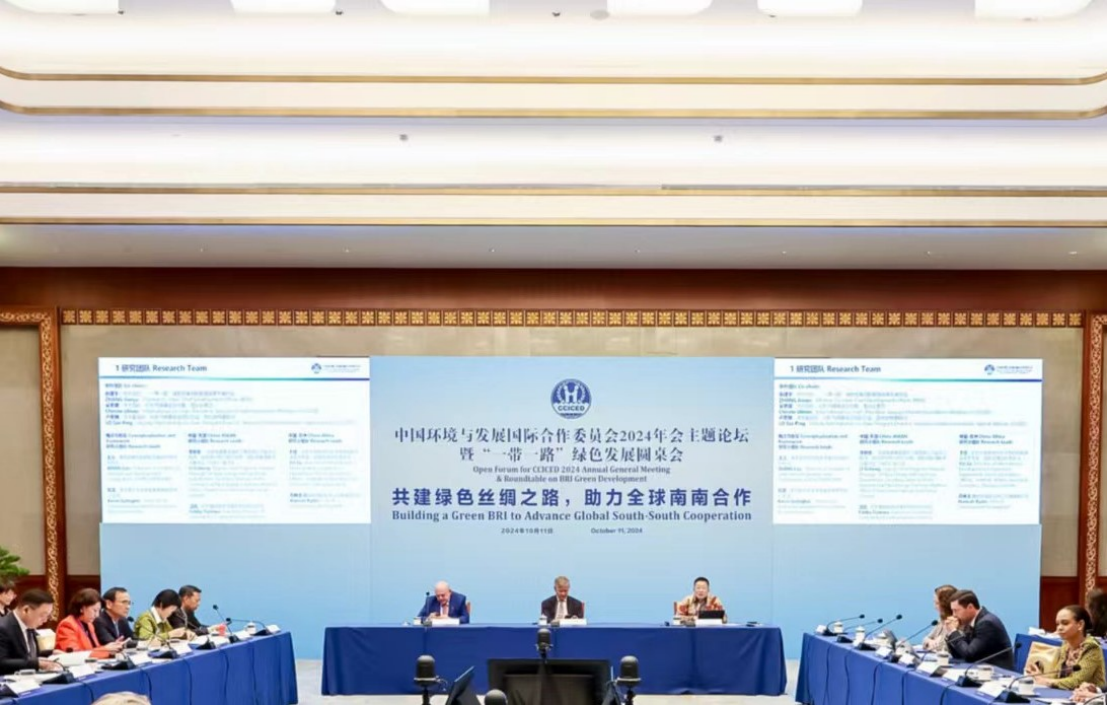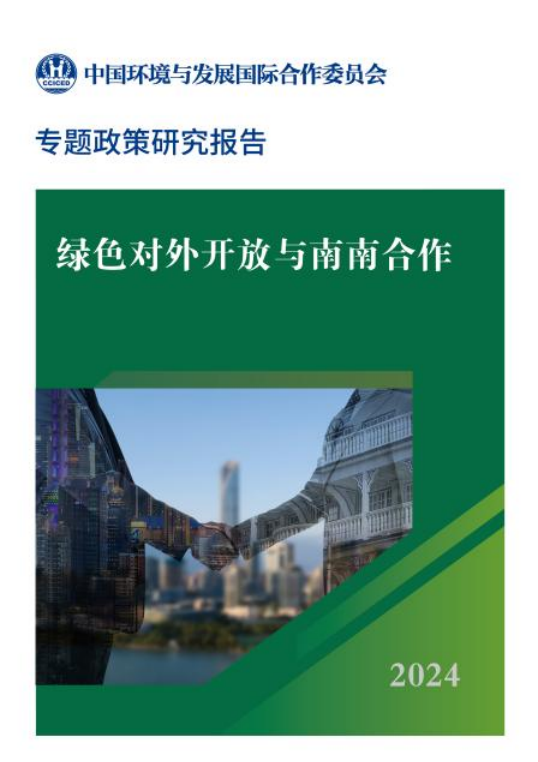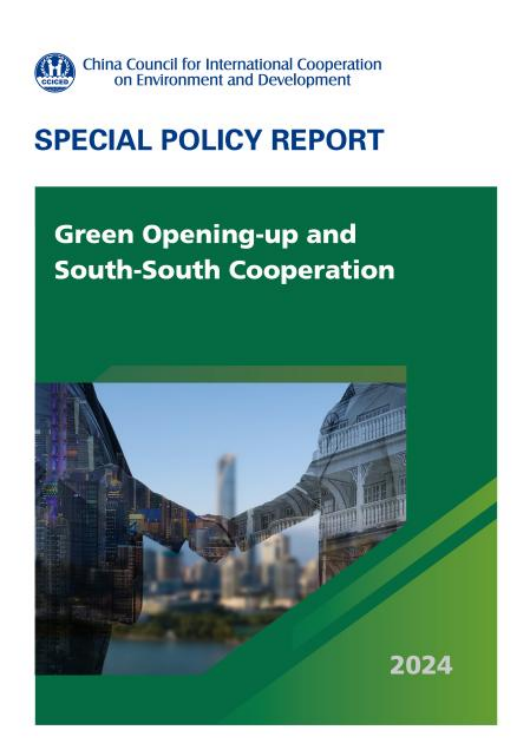CCICED Special Policy Study Report on Green Opening-up and South-South Cooperation released in Beijing
The CCICED 2024 Annual General Meeting Open Forum and Roundtable on BRI Green Development with the theme of "Building a Green BRI to Advance Global South-South Cooperation" was held on October 11 in Beijing. The Green Opening-up and South-South Cooperation Special Policy Study (SPS) Report released at the Forum garnered huge attention.
The Report is among the outcomes of the CCICED annual SPSs (2023-2024). The Study is conducted by experts from Chinese and international think tanks, including the BRI International Green Development Coalition (BRIGC), Sequoia Climate Foundation, the Chinese Academy of International Trade and Economic Cooperation (CAITEC) of the Ministry of Commerce, Boston University, POWERCHINA, Institute for Essential Services Reform (Indonesia), Institute of New Structural Economics at Peking University, and Development Reimagined. Zhang Jianyu, Chief Development Officer of BRIGC, and Christie Ulman, President of Sequoia Climate Foundation, are Chinese and International serving as the co-chairs for the SPS respectively.
Zhang Jianyu pointed out that the Green Opening-up and South-South Cooperation SPS Report intends to analyze the main features and the transition trend of South-South cooperation in the new development stage against the new global context, address the needs of the global South for green and low-carbon development with a focus on renewable energy, and provide policy recommendations for the Chinese government to advance green South-South cooperation with other stakeholders in developing countries.

Dr. Zhang Jianyu, Chief Development Officer of BRIGC, introduces the key findings during the Roundtable. (Photo by Wang Xiao)
The Report reviewed China's progress and experience in accelerating South-South cooperation on environment and development, identified major challenges and cooperation opportunities for developing countries in climate governance, renewable energy development and other priority areas with a special focus on Southeast Asia and Africa. The SPS also provided policy recommendations on how to create a new paradigm for South-South cooperation in the new development stage, with purpose to foster green and low-carbon transition in developing countries.
According to the Report, at present, global public issues are intertwined, and the systemic impacts of climate change and environmental degradation are evolving profoundly, highlighting the vulnerability of public systems and governance capabilities in developing countries under multidimensional challenges. South-South cooperation has always played a vital role in responding to global challenges. Through extensive cooperation among the global South in the fields of politics, economy, society, culture, environment and technology, developing countries share knowledge, skills, expertise and resources through joint efforts to achieve their development goals.
As a major developing country, China has consistently been a staunch supporter and active participant in South-South cooperation, advocating for the sharing of development experiences and the promotion of economic and trade development among developing countries. For decades, China has actively facilitated the exchange of knowledge, experience, policies, technologies, and resources among the Global South. This cooperation spans various fields, including climate change, agriculture, health, and infrastructure.
The Report concluded that China's investment and cooperation projects in the Global South are of great significance to local development, providing feasible solutions to driving economic growth while realizing sustainable development. Southeast Asian and African countries have unanimously identified energy transition as the key to addressing the dual challenges of development and climate change. However, they are also faced with a number of obstacles, including the "disconnection" between technology and capital markets and the lack of instruments for the development of new energy projects.
The Report proposed several recommendations, including establishing a coordinated and demand-oriented inter-governmental management framework and work mechanism for green South-South cooperation; establishing a comprehensive strategic partnership for green energy development and interconnection of energy infrastructure between China and ASEAN; exploring cooperation opportunities with Africa on sustainable trade, green industrialization and critical minerals; and leveraging high-level dialogue mechanisms to unlock the potential of China-Brazil green cooperation.
Since 2019, CCICED has carried out in five phases of SPS on BRI Green Development which intends to identify the priority tasks, paths and innovation mechanisms to realize BRI green development, providing theoretical support for high-quality development of the Belt and Road and South-South cooperation in the ecological and environmental sector in the new era.

Cover of the Chinese Version

Cover of the English Version
Source: Department of International Cooperation, China's Ministry of Ecology and Environment


